⚔️ 👑 🏰 With corporate outlets obeying in advance, supporting independent political media is more important than ever right now. Public Notice is possible thanks to paid subscribers. If you aren’t one already, please click the button below and become one to support our work. 🏰 👑 ⚔️
Donald Trump’s cronies are threatening to defy the authority of the federal courts. If they follow through, the nation’s rapid descent into dictatorship will be complete, and the risk of the first challenge to the legitimacy of the federal government since the Civil War could soon be upon us.
Over the past several weeks, Trump and consigliere Elon Musk have embarked on an unprecedented barrage of illegality, including an attempt to destroy whole government agencies and misappropriate (and likely misuse) government and personal data on a massive scale. In the face of compliant Republican majorities in both houses of Congress, the only brakes on the MAGA crime spree have come from a handful of federal judges who have issued injunctive decrees prohibiting some portions of the criminal scheme.
In recent days, Trumpers have engaged in bad faith efforts to evade some of the judicial constraints. But there are limits to the effectiveness of that strategy. And other orders they cannot fake complying with — such as the ruling keeping Treasury data out of Musk’s hands — have clearly made Trumpers’ blood boil.
Hence the now open threats by Musk, his sidekick Vice President JD Vance, and others to challenge the proposition — which has been foundational to our constitutional structure since 1803 — that the courts have the exclusive power to decide what the Constitution and laws of the United States mean and require, and can issue orders that bind everyone else (including the president) to comply.
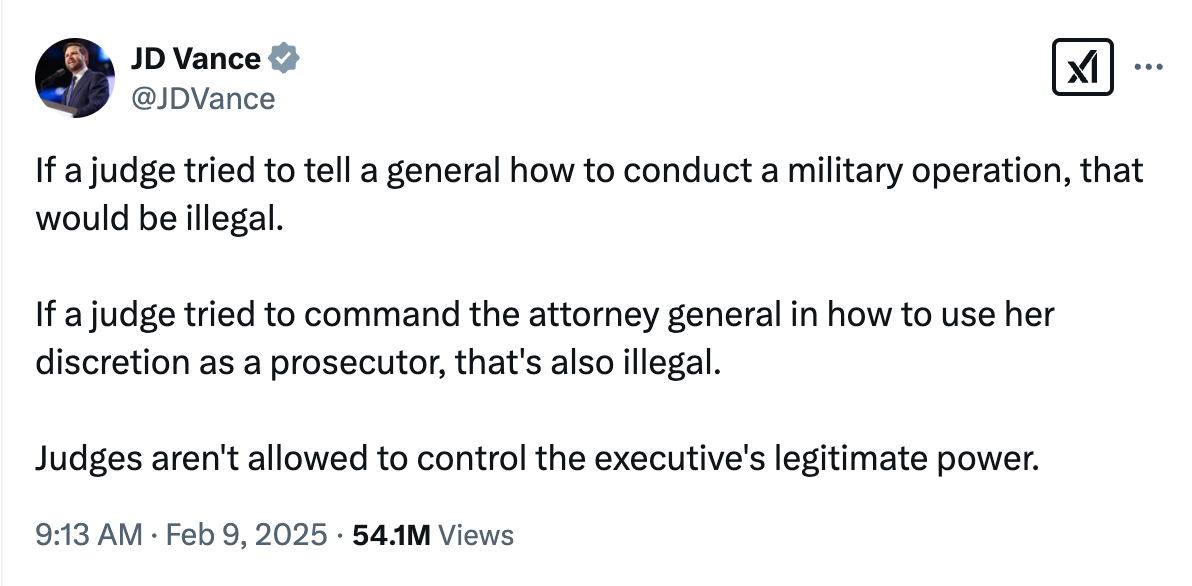
The first failed imperial presidency
In the wake of Watergate, Richard Nixon famously told David Frost that “when the president does it, that means that it is not illegal.” Nixon’s declaration that the president is the arbiter of legality flew in the face of the longstanding principle of judicial review providing that the judiciary has exclusive power to decide disputes over the nation’s Constitution and laws.
Nixon had a personal bone to pick with that principle, because it was an order by the Supreme Court requiring him to turn over evidence that brought his would-be imperial presidency crashing down.
Nixon had attempted to bring the Watergate investigation — and in particular, a subpoena for White House tapes — to a halt by firing prosecutors. HIs gambit ultimately failed, culminating in a Supreme Court ruling ordering him to turn the tapes over. Among them was the so-called “smoking gun” recording that caught Nixon directly engaged in what (until very recently) would have been deemed criminal presidential conduct.
Nixon might well have defied the Court’s ruling. But, unlike Trump today, he understood that most Republicans in Congress would not support him. He ultimately turned over the tapes, and, shortly thereafter, relinquished the White House. As his later remarks to Frost made clear, however, he left power believing that he had been wronged, as did many of his partisans.
A note from Aaron: Working with brilliant contributors like David takes resources. If you aren’t already a paid subscriber, please sign up to support our work.
During the decades after Watergate, a number of rightwing politicians and scholars (including future AG Bill Barr) focused on devising ways to increase the power of Republican presidents. They did so in the hope of arming Nixon’s Republican successors with the tools to avoid having their power limited, let alone being driven out of office.
This cohort advanced what came to be known as the “unitary executive” theory. It posited that because Article II vests executive authority in the president, the president himself has sole and exclusive authority over the operation of every executive branch agency, and therefore the power to abuse their authority.
Barr’s now-infamous “audition” memo, which he prepared before being named as Trump’s second attorney general, reflected a then-audacious (but now almost mainstream) version of the unitary executive theory. He argued, among other things, that Trump had plenary authority to order the Justice Department to terminate investigations of himself and his cronies, as well as to commence them against his political adversaries — proposals Barr implemented once he took office, including by seeking to engineer the termination of a criminal case against Michael Flynn after he had pled guilty.
Trump, who ultimately concluded that Barr had an insufficiently robust view of executive power, is now calling on AG Bondi to create entire units of the DOJ to harass, and potentially prosecute, his political opponents.
The unitary executive theory also posited that independent agencies such as the Federal Reserve Board and Federal Election Commission are unconstitutional, and that the president can direct their operations freely. Trump has enthusiastically adopted this position, including most recently by ignoring the appointment rules that govern the Federal Election Commission by purporting to fire its Democratic chair.
Additionally, since the Nixon administration, rightwing advocates for presidential power have argued that the president’s executive authority permits him to simply refuse to spend funds appropriated by Congress to effectuate policies the president disapproves of.
In 1974, Congress enacted the Impoundment Control Act, which purports to place guardrails on such actions. Once again, Trump and his current crew – including Musk and Project 2025 author and OMB boss Russ Vought — are openly defying such limitations on presidential authority, including by unilaterally dismantling duly established government agencies.
The judicial review fig leaf
Critics of the unitary executive theory have long argued that it is merely a pseudo-scholarly pretense for implementing Nixon’s previously frustrated vision of the imperial presidency, and thereby transforming the office into a dictatorship.
Unitary executive advocates, however — at least until recently — vehemently disagreed, pointing to their putative support for Congress’s lawmaking authority and the principle of judicial review. Unitary executive advocates were not, so they claimed, actually advocating for Nixon’s position that anything a president does is legal because they recognized and upheld the principle of “judicial review,” and thus the courts’ role in determining whether a president’s actions are constitutional and otherwise legal.
The principle of judicial review is not stated in any provision of the Constitution. Instead, it was announced by then Chief Justice John Marshall in the 1803 Marbury v. Madison decision — a brilliant example of politically astute judicial power-grabbing.
In Marbury, Marshall ruled that his own court-packing effort in his previous job as President John Adams’s Secretary of State had failed in one instance. William Marbury, whom Marshall and Adams wanted to install on a lower court, had not received a document called a commission in time, Marshall ruled, thereby allowing Thomas Jefferson, Adams’s successor in the White House, to keep Marbury off the bench.
Bu in order to reach that ruling in Jefferson’s favor, Marshall ruled that it was the federal courts’ exclusive prerogative to decide disputes over the meaning and proper application of the Constitution and laws of the United States. The immediate result was that a federal judiciary packed with Federalists (the party of both Adams and Marshall) became a check on Jefferson’s power. The longer term impact was to give the federal judiciary power to define the mandates of the Constitution and federal laws that could be used for good (as in Brown v. Board of Education) and evil (as in Plessy v. Ferguson).
In the decades after the Civil War, the Supreme Court was a reliably conservative adversary against progressive policies. But, beginning in the 1930s — after a standoff with FDR and change in the Court’s composition — the Supreme Court began to be viewed as an instrument of liberal public policy (including in Brown, as well as in Roe v. Wade) and therefore as an institutional adversary of Republican presidents.
Yet, following Watergate, Republicans have embarked on an increasingly brazen scheme to pack the federal courts — and particularly the Supreme Court — with rightwing extremists, their hope and expectation being that the jurists they installed would use their power of judicial review to advance Republican policies and presidents. In this way they could transform the courts into both a sword and a shield. And the strategy has succeeded, likely far beyond their greatest hopes.
Approaching the brink
The scheme has worked particularly effectively in recent years. The Court’s rightwing supermajority is effectively serving as a Republican branch of government and has been increasingly open to validating Trump’s overreaches — most notoriously in the immunity and Insurrection Clause decisions that effectively paved the way for his return to the White House and encouraged his abuses of power.
In addition, the Court seems poised to continue to issue rulings blessing most if not all of Trump’s efforts to make the unitary executive theory a political reality, including by endorsing his destruction of independent agencies. The only exceedingly modest price Trumpers had to be willing to pay was to accept a few rulings adverse to some of Trump’s most outrageously illegal actions.
The smart move would be for Trump and his cronies to grudgingly accept those rulings and at least make a pretense of complying with them. After all, courts are not equipped to micromanage the activities of presidential appointees even in the cases of openly malign actors like Musk and Vought. And once these matters reach the Supreme Court, many if not most of Trump’s actions are likely to be upheld by a Court now chock full of his cheerleaders.
In fact, if Trumpers were modestly savvy, they would recognize that the occasional high profile loss in the Supreme Court is ultimately beneficial to their cause, since they allow the Court’s rightwing justices to maintain a pretense of independence.
But despite the extraordinary benefits that Trumpers have derived from the pliant and partisan Court that Mitch McConnell packed for them, they’ve never hidden their dissatisfaction, particularly at the fact the federal courts did not validate Trump’s efforts to overturn the outcome of the 2020 election. Now, in the face of the injunctions that have placed modest limitations on their crime spree, Trumpers have declared that they are prepared to challenge the principle of judicial review and attempt to transform the presidency into an actual dictatorship, with no enforceable limitations on its exercise of power.
The dark irony of this powergrab is that it is hugely self-destructive to Trump and Trumpism. Given the brazenness of his actions, Trump more than ever needs his Supreme Court majority to come through for him and lend a veneer of legitimacy to his actions, even if doing so comes at the cost of clipping his wings along the edges.
If Trump proceeds in open defiance of the courts he will risk turning the huge asset of a politicized rightwing Supreme Court into a liability. More importantly, Trump may call into immediate question the legitimacy of his own authority — legitimacy the Supreme Court has lent to him through key rulings it bent over backward to issue in his favor.
A Trump without that veneer of legitimacy offered by the judiciary will end up, like his idol Vladimir Putin, as a “strongman” who can remain in office solely and entirely based on the threat of force. The question, then, could become whether military and law enforcement authorities will be “loyal” to a leader who has shed even the pretense of constitutional legitimacy.
It’s disturbingly easy to envision a situation where Trump’s assault on the nation’s constitutional order rapidly changes from a cold to a hot war, just as occurred in the middle of the 19th century. But the costs to the nation and to the world of such a conflict in the 21st century could be even higher than they were back then.
That’s it for today
We’ll be back with more tomorrow. If you appreciate today’s newsletter, please support our work by signing up. Paid subscribers make PN possible.
Thanks for reading.





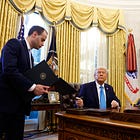
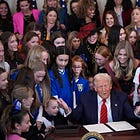

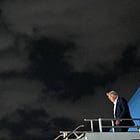
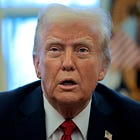
This is why others are talking of a coup. There will be a hot war in that case. We will not take this easily. If we allow this, then it cements itself. Will this be the "land of the free and the brave'' "brotherhood undimmed by human tears"? NOW is the time to act.
It's clearly been Republicans for many decades that have been seeking this takeover of power... not the Democrats. That is the truth. They want all the power. And they are getting it. They practically have it. WE are left to defend with a ground operation:People Power.
Why with a unitary executive couldn't a Democratic president use it? That is your ESSENTIAL difference between the parties- a deep difference in what kind of country we want.
We have been going back and forth through the decades. Now we will be STUCK if we do not prevent this, if we do not resist. We will be stuck in a Republican Party Government, a ONE party government, with people complying out of fear and to survive. Republicans, not Democrats, truth be told, are evolving us into a dictatorship. They have sought to gain power through the decades pushing the "unitary executive". This is a coup. This is a completely different government than what, dare I say, most of us have signed onto. Not of for and by the people, but of for and by the few, the so called religious right, the money interests, the haters, the conned. And it's not for just 4 years of a Republican presidency. They are already floating beyond... heady with power.
Even if trump's lying lawyers were modestly savvy, trump is an arrogant buffoon who will continue to undermine any attempts at shrewd constraint among his lackeys. It is entirely possible that their coup could work, but the resistance might actually have perverse ally in trump as he is his own worst enemy. We need to fight like hell on outside, while from the inside, the deranged orange menace brazenly continues to lose his mind in full view of the American public and the world. In the best, most just scenario he will be his own undoing.